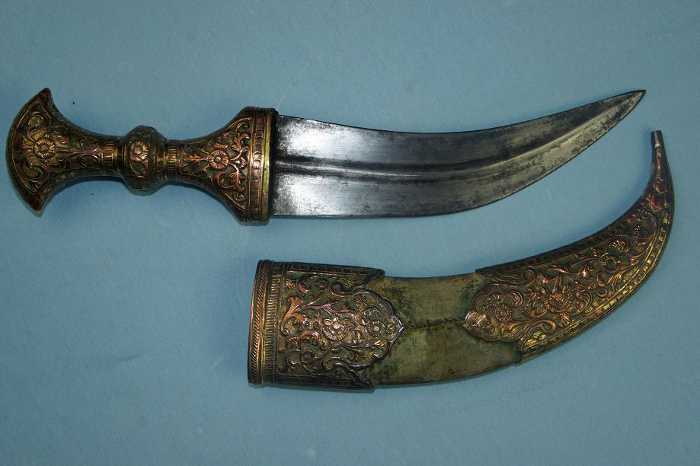FWP:
Nazm does a fine explication, and the other commentators mostly follow his line of argument. And yet the range of possibilities is surely a bit wider. What exactly does the beloved's adorable 'simplicity' consist of? There seem to be two main possibilities:
(1) The beloved thinks she doesn't need a dagger in order to slay the lover. This is the line the commentators take. This 'simplicity' and naive self-confidence of hers are so powerfully moving and adorable that they in fact make her assumption true. The lover would indeed give up his life over her-- but it's not up to him, for she herself has once again taken the dagger in her hand.
This situation in turn has any or all of these possible implications: (a) that he can't kill himself with the dagger, since she's got control of it; (b) that she can kill him with the dagger, if she chooses, since she's apparently changed her mind about needing and/or using it; (c) that he perhaps can't kill himself just by dropping dead out of sheer helpless passion, as he had been inclined to do, since he no longer controls the situation: she might take the matter out of his hands by using the dagger on him.
(2) The beloved thinks she does need a dagger in order to slay the lover. This 'simplicity' is shown by her act of picking up a dagger. Her naive lack of awareness of her own overpowering beauty and charm is so captivating that he would gladly just lie down and die over it; he is completely helpless and powerless. Whether she actually uses on him this time the dagger that she has 'again' picked up is entirely out of his control. Her naive belief that she needs a dagger in order to kill him finds a parallel in {3,6}, in which poor conventional Farhad thinks-- wrongly-- that he needs an axe in order to kill himself.
This verse so clearly evokes {112,9}
that I'm surprised the commentators haven't mentioned the resemblance.

Nazm:
By 'simplicity' is here meant the renunciation of adornments and equipment, through which it conquers without a sword. That is, the state she's in without putting on a sword-- I long to cut my throat and die for that style. But she doesn't allow me to cut my throat, and takes the dagger in her hand; and because the dagger is in her hand, for two reasons my longing can't be fulfilled. One is that when the dagger is in her control, then how could I possibly cut my throat? And the other reason is that when the dagger comes into her hand, where then is that 'simplicity', for which we would have sacrificed our life? And from the word 'again' the meaning emerges that this had already happened previously as well-- that we would have cut our throat, but she took the dagger in her hand, so that that simplicity no longer remained, for which style we would have given our life, nor could we have control over the dagger itself. (168)
== Nazm page 168